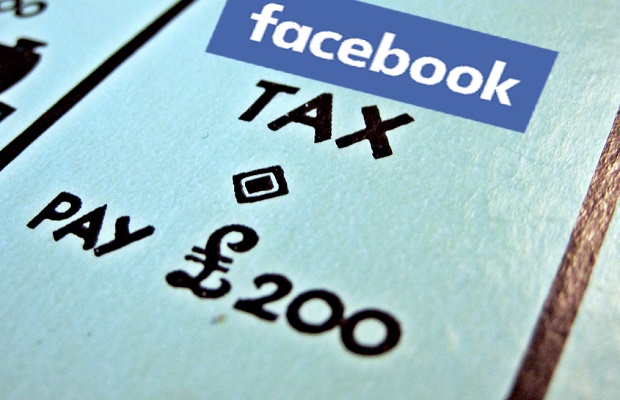Facebook paid £4.16m in UK corporation tax last year, marking an increase on the previous year, but a £11.3m ‘tax credit’ could cancel out any future contributions.
The £4.16m is a big increase on the £4,327 paid in 2014, which prompted an outcry from campaigners who argued the world’s biggest social network had not paid its fair share compared to smaller businesses, which have to pay 20% of their profits in corporation tax.
Facebook was accused of funnelling British profits through its international headquarters in Ireland to another organisation registered in the tax friendly Cayman Islands. However, it claims to have made changes from April.
The social network firm made global profits of $3.7 billion (£3 billion) on revenues of almost $18 billion (£14.5 billion) in 2015.
A spokesperson for Facebook said: “We are proud that in 2015 we have continued to grow our business in the UK and created over 300 new high skilled jobs. We pay all the taxes that we are required to under UK law.”
However, critics may also be riled by the fact that the company will receive a tax credit of £11m, which can be used to offset tax bills at a later date.
The £11.3m tax credit at Facebook UK Ltd can be offset against future tax bills and is likely to raise further questions about whether the $370bn US company is paying its fair share towards Britain’s public finances.
Last week, the prime minister, Theresa May, told the Conservative party conference: “If you’re … an international company that treats tax laws as an optional extra … I’m putting you on warning. This can’t go on any more.”
Until April, all Facebook’s UK advertising sales were routed through its operations in Dublin, reducing the UK tax bill.
Activities at Facebook UK, meanwhile, were confined to selling “sales support, marketing services and engineering support” to other companies within the Facebook group.
A change in 2016?
The company agreed earlier this year to book sales to major UK advertisers in Britain, rather than Ireland – so they will be subject to tax here.
Although this won’t include sales made over the internet, it should still mean a much bigger payment is due for 2016.
Facebook employed 682 people in the UK last year, up from 362 in 2014, and the company now has more than 1,000 full-time equivalent staff.
Globally Facebook made profits of $3.7bn in 2015 on revenues of almost $18bn – 44% higher than the previous year.
Facebook are not the only major tech company to coyurt controversy over their UK tax payments. Last year, Google and HMRC, the tax authority, agreed that the company will pay an additional £130m tax for the last decade.
Several experts have said that this, along with the tax it has paid, represents only around 3-5% of the profits that they think Google should be taxed on.
“Lack of transparency”
Commenting on the Facebook tax issue, Professor Crawford Spence at of Warwick Business School, said: “Facebook’s recent announcement of a £4.1m tax charge is not actually a reflection of what tax the company will pay. “Due to complex share accounting rules, Facebook has been able to cancel out this tax charge completely, as well as insulate itself from approximately £11 million of future tax bills. As creative as this appears and is, it is however within the confines of the law. What is more worrying from a public interest perspective is the lack of transparency over UK company profits in general.
“Being registered in Delaware in the US, the company does not have to report its revenues for the UK separately. However, we do know that the company’s tax strategy is based on the UK being much less profitable than operations in other countries. It is very unclear why this would be the case given the relative homogeneity of the company globally. However, without separate detailed accounting information on the UK operations, we cannot really assess whether this is plausible or just superficial profit shifting.
“The UK government should follow OECD guidance and demand that multi-nationals implement ‘country by country reporting’ for tax purposes.”

